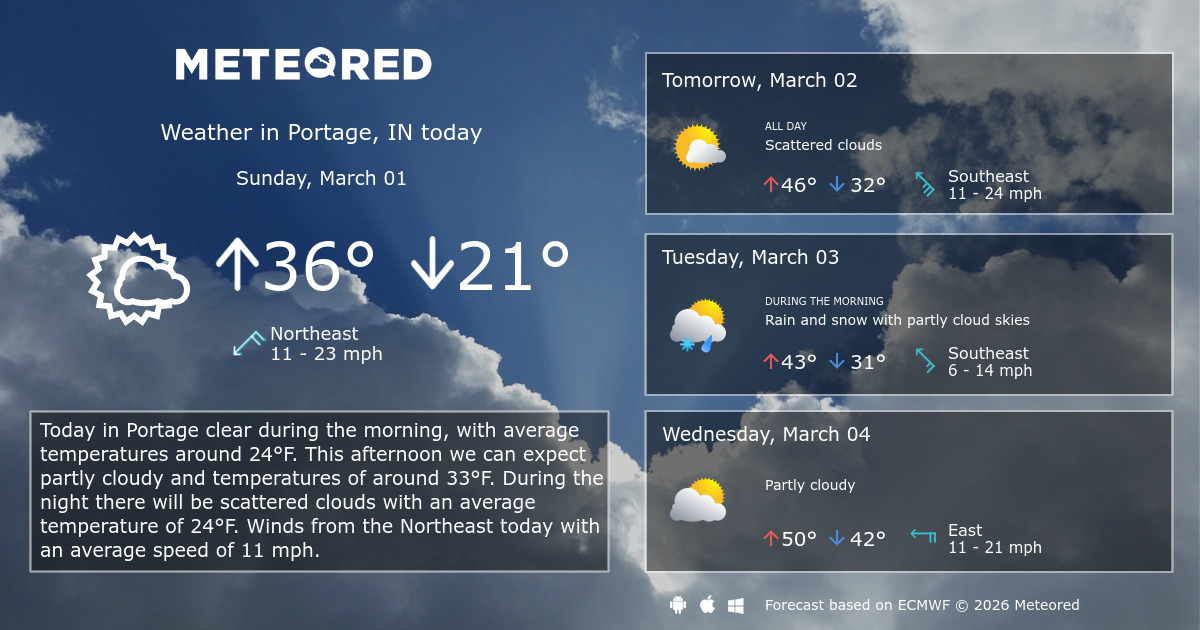Portage Weather Data Analysis
Portage weather – Portage, located in the Midwestern United States, experiences a humid continental climate with warm summers and cold, snowy winters. The city’s weather is influenced by its proximity to Lake Michigan, which moderates temperatures and contributes to the area’s high humidity levels.
The skies over Portage were a canvas of swirling clouds, painting a picture of uncertainty. The wind howled like a banshee, carrying with it whispers of an impending storm. Suddenly, the radio crackled with a chilling announcement: ” Tornado warning for Fulton, Missouri.” A surge of panic coursed through the town as people sought shelter.
As the storm raged outside, the portage weather had become a dangerous dance of nature, leaving behind a trail of destruction.
Temperature, Portage weather
Portage’s average annual temperature is 47.5°F (8.6°C). The warmest month is July, with an average temperature of 73.5°F (23.1°C), while the coldest month is January, with an average temperature of 21.2°F (-6°C).
The portage weather, with its unpredictable nature, can be as unpredictable as the mcdonald grimace shake , a tantalizing concoction that leaves one craving for more. Just as the shake’s elusive purple hue can vanish in an instant, so can the sun’s rays behind a passing cloud during a portage journey.
But as the clouds part and the sun emerges, the portage weather transforms into a serene and inviting companion, much like the sweet and creamy delight of the grimace shake that lingers on the palate.
The city experiences extreme temperatures on occasion. The highest temperature ever recorded in Portage was 105°F (40.6°C) in July 1936, while the lowest temperature ever recorded was -27°F (-32.8°C) in January 1985.
Portage weather is often unpredictable, with sudden shifts in conditions. Today, the county is under a tornado warning, as reported by tornado warning broward county today. While such severe weather events are rare, it’s crucial to stay informed and take necessary precautions to ensure safety.
Despite the warning, Portage weather remains dynamic, with the possibility of changing conditions in the coming hours.
Precipitation
Portage receives an average of 35.1 inches (891 mm) of precipitation per year, which is distributed fairly evenly throughout the year. The wettest month is June, with an average of 4.5 inches (114 mm) of precipitation, while the driest month is February, with an average of 1.7 inches (43 mm) of precipitation.
Portage weather can be unpredictable, with sudden changes in temperature and precipitation. To stay informed about the latest weather conditions, check the kalamazoo radar for real-time updates. This radar provides detailed information about current and forecasted weather patterns, helping you plan your outdoor activities accordingly.
With the kalamazoo radar, you can stay prepared for any weather surprises that Portage may throw your way.
Portage experiences occasional heavy rainfall events. The city’s highest 24-hour rainfall total was 7.1 inches (180 mm), which occurred in August 1987.
Wind Speed
The average wind speed in Portage is 10.2 mph (16.4 km/h). The windiest month is March, with an average wind speed of 12.3 mph (19.8 km/h), while the calmest month is August, with an average wind speed of 8.7 mph (14 km/h).
Portage experiences occasional strong winds. The city’s highest wind gust ever recorded was 75 mph (121 km/h), which occurred in January 1979.
Humidity
Portage has a humid climate, with an average relative humidity of 72%. The most humid month is July, with an average relative humidity of 79%, while the least humid month is January, with an average relative humidity of 65%.
The city experiences occasional periods of high humidity. The city’s highest relative humidity ever recorded was 100%, which occurred in August 1986.
Trends and Patterns
Portage’s weather data shows several trends and patterns.
- Temperatures have been increasing over the past few decades. The average annual temperature has increased by about 2°F (1.1°C) since the 1970s.
- Precipitation has also been increasing over the past few decades. The average annual precipitation has increased by about 5 inches (127 mm) since the 1970s.
- Wind speeds have been decreasing over the past few decades. The average annual wind speed has decreased by about 2 mph (3.2 km/h) since the 1970s.
- Humidity levels have been increasing over the past few decades. The average annual relative humidity has increased by about 5% since the 1970s.
Impact of Weather on Portage Tourism: Portage Weather

Weather conditions significantly influence tourism in Portage, a popular destination for outdoor recreation. Favorable weather enhances the enjoyment of activities like hiking, fishing, and boating, while inclement weather can hinder these pursuits.
Impact on Hiking
Hiking trails in Portage offer scenic views and diverse terrain. However, extreme heat, heavy rain, or icy conditions can make hiking trails inaccessible or hazardous. For example, during the summer months, excessive heat can lead to dehydration and heatstroke, prompting trail closures.
Impact on Fishing
Portage’s lakes and rivers are renowned for their fishing opportunities. However, weather conditions can affect fish activity and visibility. Strong winds can create choppy waters, making it difficult to cast lines and navigate boats. Conversely, calm and sunny weather provides ideal conditions for fishing.
Impact on Boating
Boating is a popular pastime in Portage, with opportunities for sailing, kayaking, and canoeing. However, high winds and rough waters can pose safety risks. Thunderstorms with lightning can also force boaters to seek shelter or return to shore.
Impact on Businesses and Events
Weather conditions also impact businesses and events that rely on outdoor activities. For instance, guided tours, boat rentals, and fishing charters may need to be canceled or rescheduled due to inclement weather. Similarly, outdoor festivals and concerts can be affected by rain or extreme heat.
Mitigation Strategies for Businesses
To mitigate the effects of inclement weather, businesses in Portage can adopt several strategies:
- Offer indoor activities or alternative experiences during inclement weather.
- Provide weather updates and advisories to customers.
- Consider offering discounts or promotions during periods of inclement weather to encourage visitors.
- Partner with local businesses to offer complementary activities or services.
Climate Change and Portage Weather

Climate change poses significant implications for Portage’s weather patterns, potentially leading to profound impacts on the local ecosystem and community.
Studies indicate a rise in average temperatures in Portage, accompanied by increased frequency and intensity of extreme weather events such as heat waves, droughts, and heavy precipitation. These changes are attributed to rising levels of greenhouse gases in the atmosphere.
Rising Temperatures
- Portage has experienced a gradual increase in average temperatures over the past decades.
- Warmer winters and hotter summers are becoming more common, resulting in longer growing seasons.
- Elevated temperatures can lead to heat stress, dehydration, and increased energy consumption for cooling.
Extreme Weather Events
- Extreme weather events, including heat waves, droughts, and heavy precipitation, are projected to become more frequent and severe.
- Heat waves can cause heat-related illnesses, strain on infrastructure, and wildfires.
- Droughts can lead to water shortages, crop failures, and ecosystem disruption.
- Heavy precipitation events can cause flooding, landslides, and infrastructure damage.
Impacts on Local Ecosystem and Community
- Climate change-induced weather patterns can disrupt plant and animal habitats, affecting biodiversity.
- Changes in precipitation patterns can impact water availability for agriculture, industry, and domestic use.
- Extreme weather events can damage infrastructure, disrupt transportation, and pose risks to human safety.
The unpredictable weather of Portage can be a challenge, but it’s also what makes living here so interesting. From the sweltering heat of summer to the icy cold of winter, there’s always something new to experience. If you’re looking for a place with a more moderate climate, you might want to consider Kalamazoo County , which is located just a few miles to the south.
But if you’re up for a little adventure, Portage is the place for you. Just be sure to pack your umbrella!